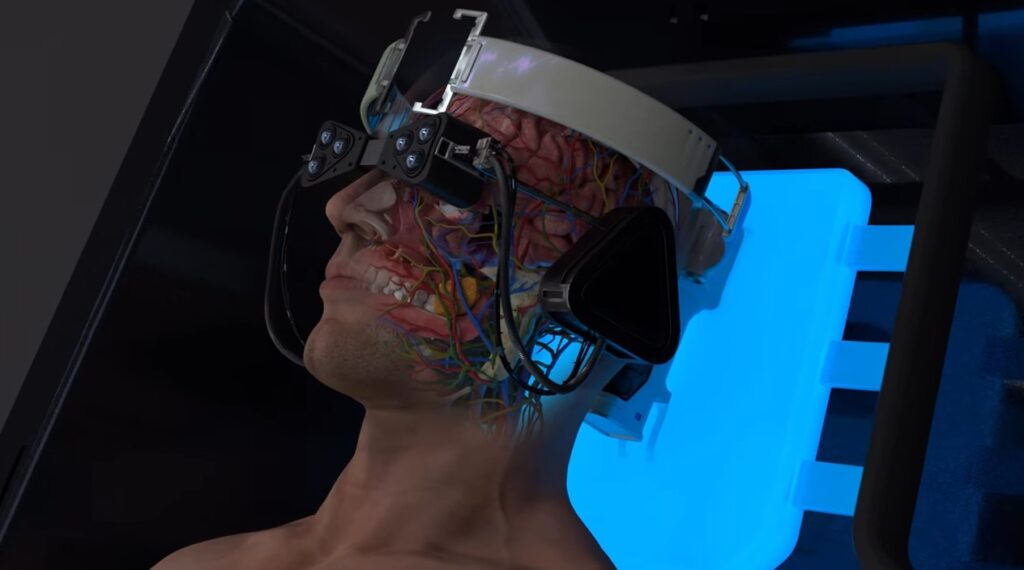
A Visualization of the Cognify Prison Method. NewsNation
The hypothetical concept of an AI-assisted prisoner experience has recently sparked controversy across social media platforms. The Cognify device, ideated by Hashem Al-Ghaili, conceptualizes on implanting artificial memories into offenders’ brains, such as recounting a crime from a different perspective or simulating the struggles of victims. The device’s use would be customized for each individual, with factors like the severity and type of offense taken into account. Additionally, emotional states such as remorse and regret could be triggered in real-time by adjusting neurotransmitters and hormones. The Cognify device was thought up with the intent to offer offenders an alternative to serving long prison sentences. While the future prison system could benefit from reduced costs and treatments that can be completed in a matter of minutes, many are concerned about the ethical implications and how the device could realistically be integrated into society. This article explores the positives and negatives of implementing Cognify in the criminal justice system.
Support for Cognify: The Revolutionization of Criminal Rehabilitation
1. Cost Savings Through Efficient Rehabilitation
Replacing extended prison sentences with a brief, intensive rehabilitation allows the cost of maintaining facilities and supporting inmates to be drastically lowered. Funds saved from reduced incarceration could be reallocated to other critical areas such as education, healthcare, and other social welfare programs.
2. Easier Reintegration into Society
A major concern with the current criminal justice system is that prisoners released after long sentences often struggle to reintegrate into society due to the significant changes that have occurred during their incarceration. By rehabilitating offenders more quickly, Cognify would allow them to reintegrate sooner, addressing this issue. Additionally, early release would enable them to contribute to the workforce, boosting productivity and generating more tax revenue, which could offset the initial investments in the technology.
Opposition to Cognify: Ethical Concerns and Societal Risks
1. More Harm than Good
Since Cognify would work directly with the brain, it raises several ethical and health concerns. For instance, to implant artificial memories, the Cognify devices would need to connect to a person’s brain in a yet-to-be-understood way. This process could significantly impact an individual’s mental and emotional well-being, with potential long-term implications that remain unknown.
2. The Unknown Future Development
There is no doubt that this technology could be further developed in the years to come and potentially used for the wrong reasons. Artificial memories have the potential to be very powerful and could be misused in ways that harm societal growth. Additionally, private and personal information from a person’s brain could be easily leaked if not properly secured. If Cognify is advanced for criminal rehabilitation, there is a significant risk it could be misapplied in society, leading to lifelong consequences for our world.
There are several other reasons why one might support the development of the Cognify device for criminal rehabilitation, as well as reasons to oppose it. What are your thoughts about “A Futuristic Approach to Criminal Rehabilitation”? Go to <https://bit.ly/CTSep2024> or scan the QR code and tell us where you stand! Votes are collected until September 21, 2024, and results will be released in the October 2024 issue of The Tattler.
